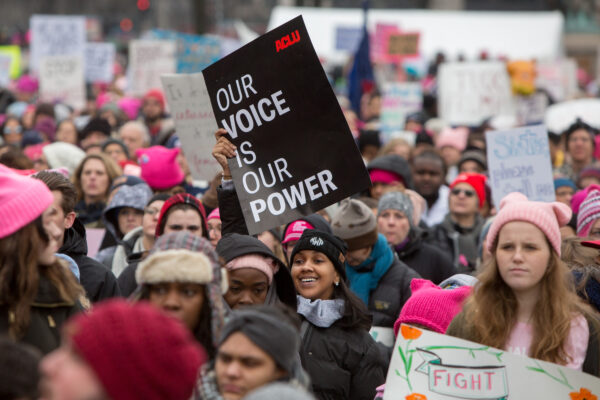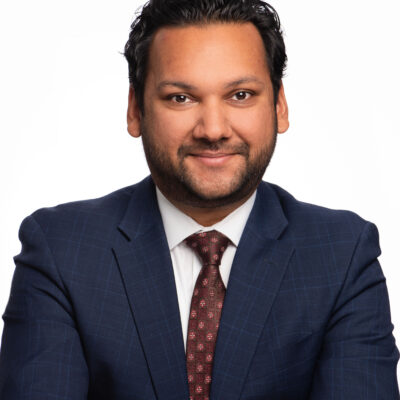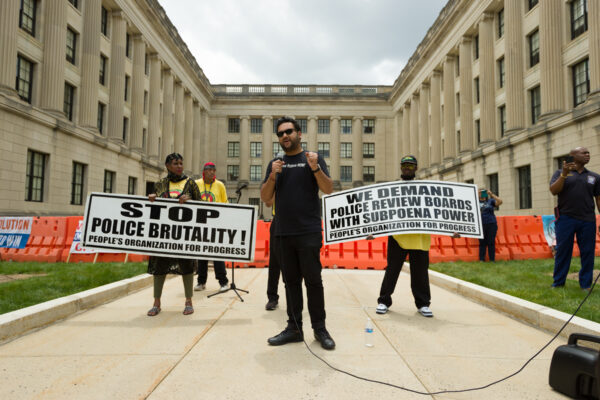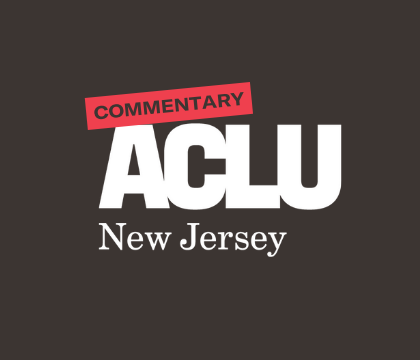Last month marked my fifth anniversary as executive director of the ACLU of New Jersey. This time has been rich and meaningful, filled with opportunities and challenges, as well as impact and transformation.
One of the most valuable lessons I’ve learned during this time has become a core truth: Organizations are not static.
It may sound obvious, but the implications of this reality are vast and can even be liberating. Just like the world around us, advocacy organizations are constantly evolving, growing, and adapting. Organizational leaders must grow comfortable with being in a state of evolution – in our infrastructure, our systems and processes, our advocacy priorities, and our culture.
Evolution does not mean instability. In fact, it is a sign of good organizational health, especially when our shared principles remain steadfast.
A significant step in our organization’s evolution happened earlier this year when the ACLU of New Jersey adopted a new strategic framework. Our staff and board worked together to develop a strategic approach to every aspect of our work, both internally and externally. Over many months, we engaged in deep conversations with our staff, board members, stakeholders, community partners, and more. These conversations were not easy – they were candid, revealing, and, at times, vulnerable – but they were enormously valuable. We developed a better understanding of our organization in the context of the current moment and articulated a vision for our future. And perhaps most meaningfully, we identified our key principles to guide our strategy for the next five years: racial justice, partnered leadership, and organizational development.
Racial Justice
Racial equity and justice are lenses through which we strive to examine every aspect of our organization. This includes our internal growth, outward-facing programmatic work, partnerships, and fundraising and resource development.
Attention to racial justice and dismantling white supremacy will continue to be integral to the work we do, who we work with, how we work with each other, and how we present ourselves in the larger community and public.
We’ve grown into an organization that is majority people of color and has for decades been predominantly women. However, as a fundamental orientation for the organization, racial equity and the work of diversity, inclusion, and belonging goes well beyond recruitment and hiring. We must continually interrogate all policies and processes to ensure they align with our core values. This process impacts how we make organizational decisions (almost never unilaterally), the benefits we offer our employees, the way we have adapted to a hybrid work schedule, and so much more. We routinely question why we do things the way we do – whether they are requirements, preferences, or traditions in our work and the implications of each.
In our programmatic work, we consider the potential impact it would have on racial justice. We understand that systemic racism is embedded in every American institution, including the criminal legal system, disparities in public education, economic systems, public health, and much more. It is our job to address the injustices caused by these systems and advocate for progress. Whether it is a new policy campaign, like advocating for people to be released early from prison during the COVID-19 pandemic, or legal work, like rooting out racial bias in jury selection, we identify how our advocacy can address systemic racism. In spaces where race analysis is lacking, we intentionally bring an intersectional lens.
It is also our responsibility to bring people along. At the ACLU-NJ, we have many constituencies – communities whose rights have historically been denied, our members and supporters, advocacy partners, stakeholders, and more. Each person we encounter is at a different point in their understanding of systemic racism. Part of our work is meeting them where they are and contributing to their knowledge of how bias and racism inform our society.
Partnered Leadership
Our work is grounded in partnership with communities that are systemically denied their rights. We can only be effective in our work when we do it together, with clients, community members, and advocacy partners. We aim to center the voices of those harmed by unjust systems in our work to improve those systems and follow their lead. We are committed to learning from the lived experiences brought by those – including many of us on the ACLU-NJ’s staff and board – who are Black and other people of color, working class and poor, immigrants, people impacted by in the criminal legal system, women, people with disabilities, LGBTQIA+, and other marginalized communities.
Our work utilizes a model that we call “integrated advocacy,” simultaneously using all our tools – impact litigation, legislative advocacy, community organizing and coalition building, public education, and strategic communications – to achieve our transformative goals. This model requires internal cross-departmental collaboration and external partnerships as essential components of our advocacy. Our strategic framework renews our commitment to integrated advocacy.
Organizational Development
We must meaningfully invest in our organization to achieve our goals and fulfill our vision of a more just and equitable New Jersey. This includes investments in our staff’s well-being and professional development, our governance, our technology, our internal communications, and all aspects of management. All this will necessarily inform and contribute to our impact and our culture.
We are at the point in the trajectory of our organization where we must ensure that internal systems are at the center, rather than the periphery, of organizational attention and growth. To that end, over the past several months, we have professionalized many functions, including creating a more formal and fully developed administrative department to oversee human resources, finance, and internal operations. We’ve secured new office space in downtown Newark and upgraded our technology infrastructure to ensure that our people have the space and tools they need to be effective. We believe this organizational attention will greatly impact our programmatic success.
Woven into these three strategic priorities are our values. We approach each other and the spaces we occupy with humility, generosity, and kindness. And we build meaningful, lasting, trusting relationships within and outside the ACLU-NJ, which serve as the basis for our work. I’m five years in, and I have a renewed sense of energy and pride in the work of the ACLU-NJ. I can’t wait to see where the next five years take us.






